|
fish species
Brown
Trout
These were the first of the salmonid species to be
acclimatised in New Zealand (in 1867). They are widespread
throughout the country in lakes and rivers, achieving body
weights in excess of 15 kg. The river fish are distinguished by
large black, blue or red spots on the body and a square tail with
a few spots. The anal fin has between 10 and 12 rays.
The lake and sea-run fish are silver coloured in summer with
dark spots on the body.

Rainbow Trout
Introduced from Californian steelhead stock in 1883 into the
Auckland area, and then distributed through the country. They are
prolific in lakes, rivers and streams throughout both islands and
continue to thrive in an environment that is perfect for their
species.
This species has a bewildering array of different forms.
Generally the fish have a square tail with radiating spots and a
pink stripe may be present along the lateral line. There are
spots all over the tail but the rest of the body is usually
silver.
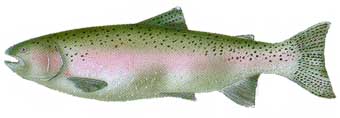
Brook Trout
This species was also introduced from California but has not
become as widespread as the ubiquitous rainbows. The less
aggressive brook trout can’t compete with the rainbow, tend
to retreat to stream headwaters and rarely exceed 2 kg.
They are somewhat darker in colour, have a very large mouth
and contrasting black and white stripes on their lower fins.
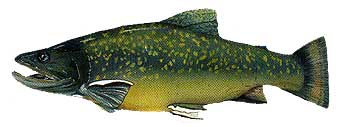
Chinook Salmon
This salmon species is also known in New Zealand as quinnat,
another Indian name. They are the largest of the six Pacific
species, commonly averaging between 12 and 18 kg.
The sea run and spawning fish have a black mouth and gums,
spots covering the whole tail and 15-19 anal fins.
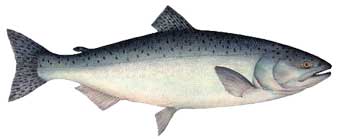
Rudd
Have a bright red and orange tail and fins and are covered in
large shiny scales.
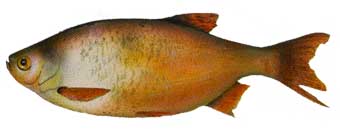
Perch
Have two dorsal fins and sharp spikes on the front dorsal
fin.
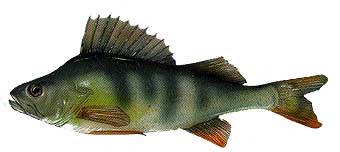
Tench
Are distinguished by their deep olive and green body colour.
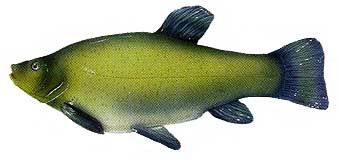
|











